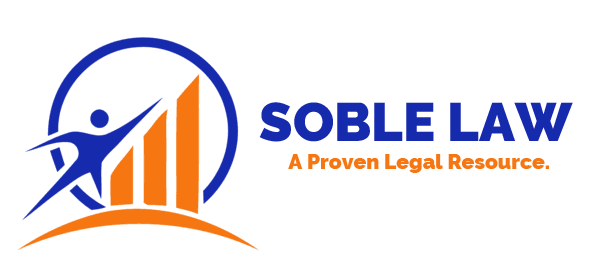FACTS & MYTHS
Let’s face it, it’s far easier to get into debt than it is to get out of debt. This is in part to the many common myths surrounding debt that leads to confusion and poor judgement when dealing with your creditors. It makes negotiating with your lenders quite difficult. If you are struggling with loans or debt of any kind, talk to a debt or loan attorney to get the answers you need. Here are some of the most common loan myths – debunked.
YOU SHOULD BORROW MORE THAN YOU NEED, JUST IN CASE.
This is a common myth about personal loans that has negative far reaching consequences. Over time, you will incur interest fees on the money that you borrow, so taking out even a small sum of extra money can cost you a significant amount in the long run. Borrowing more than you need can also deter you from saving money and make you overly reliant on your loans.
A CREDIT CARD IS ALWAYS MORE EXPENSIVE THAN A LOAN.
If you have a very high credit score, you should be demanding a competitive and low interest rate. It’s harder to get a competitive interest rate when you have mediocre or low credit score. Sometimes you can’t even secure a loan with a bank or credit union. That’s when people turn to credit cards. Having a high rate credit card is not necessarily expensive if you pay off your credit card balance every month – you won’t incur interest on the balance. People get into financial trouble is when they fail to pay the credit card balance off in full. That’s when the high interest rate on credit cards can be devastating. It’s a slippery slope. Each month the high interest on the balance increases the total amount due, causing borrowers to pay only the minimum payments required. That’s when you need to speak with a debt or loan attorney for legal relief.
INQUIRING ABOUT LOAN RATES WILL HAVE A NEGATIVE EFFECT ON YOUR CREDIT SCORE.
Looking into the potential loan rates does not actually count as a ‘hard inquiry’ which affects your credit score. You can obtain information about credit limits and interest rates from as many lenders as you want prior to choosing one, without it having any effect on your credit. Only the loan you finally apply for will be considered in calculating your credit score.
IF I FILE FOR BANKRUPTCY I WILL NO LONGER BE RESPONSIBLE FOR PAYING MY LOANS.
This depends on which type of bankruptcy you file. A Chapter 7 personal bankruptcy allows you to liquidate all of your debt while a Chapter 13 personal bankruptcy provides for the repayment of some or all of your debt. How your debt is categorized will have an impact on how you will be required to repay your debt. Loans can be either secured, (home or car loans) or unsecured (credit cards and most personal loans.) Also, you may not be relieved from paying delinquent student loans or certain federal tax obligations. Filing bankruptcy can be complicated and overwhelming. If you are struggling to pay off your loans and other debts, speak first to debt attorney David Soble to see what other options exists for your situation.
Let’s face it, it’s far easier to get into debt than it is to get out of debt. This is in part to the many common myths surrounding debt that leads to confusion and poor judgement when dealing with your creditors. It makes negotiating with your lenders quite difficult. If you are struggling with loans or debt of any kind, talk to a debt or loan attorney to get the answers you need. Here are some of the most common loan myths – debunked.
YOU SHOULD BORROW MORE THAN YOU NEED, JUST IN CASE.
This is a common myth about personal loans that has negative far reaching consequences. Over time, you will incur interest fees on the money that you borrow, so taking out even a small sum of extra money can cost you a significant amount in the long run. Borrowing more than you need can also deter you from saving money and make you overly reliant on your loans.
A CREDIT CARD IS ALWAYS MORE EXPENSIVE THAN A LOAN.
If you have a very high credit score, you should be demanding a competitive and low interest rate. It’s harder to get a competitive interest rate when you have mediocre or low credit score. Sometimes you can’t even secure a loan with a bank or credit union. That’s when people turn to credit cards. Having a high rate credit card is not necessarily expensive if you pay off your credit card balance every month – you won’t incur interest on the balance. People get into financial trouble is when they fail to pay the credit card balance off in full. That’s when the high interest rate on credit cards can be devastating. It’s a slippery slope. Each month the high interest on the balance increases the total amount due, causing borrowers to pay only the minimum payments required. That’s when you need to speak with a debt or loan attorney for legal relief.
INQUIRING ABOUT LOAN RATES WILL HAVE A NEGATIVE EFFECT ON YOUR CREDIT SCORE.
Looking into the potential loan rates does not actually count as a ‘hard inquiry’ which affects your credit score. You can obtain information about credit limits and interest rates from as many lenders as you want prior to choosing one, without it having any effect on your credit. Only the loan you finally apply for will be considered in calculating your credit score.
IF I FILE FOR BANKRUPTCY I WILL NO LONGER BE RESPONSIBLE FOR PAYING MY LOANS.
This depends on which type of bankruptcy you file. A Chapter 7 personal bankruptcy allows you to liquidate all of your debt while a Chapter 13 personal bankruptcy provides for the repayment of some or all of your debt. How your debt is categorized will have an impact on how you will be required to repay your debt. Loans can be either secured, (home or car loans) or unsecured (credit cards and most personal loans.) Also, you may not be relieved from paying delinquent student loans or certain federal tax obligations. Filing bankruptcy can be complicated and overwhelming. If you are struggling to pay off your loans and other debts, speak first to debt attorney David Soble to see what other options exists for your situation.
QUESTIONS AND ANSWERS
QUESTIONS AND ANSWERS
RECENT QUESTIONS
I was granted a quiet title in court against one of the lien holders I sued regarding my property, Does that mean that other lien holders will lose their judgment liens against my property as well and the title will be free from all liens?
If you are applying for a credit card personally, then a SSN would be appropriate. If you are applying for a business card, then the bank should be asking you for a Tax ID No. (TIN). It’s common that lenders will consider extending credit only if the obligee (that’s you) would guaranty the debt. Therefore, they need your SSN.
Can an IRS debt be reduced without filling out so much paperwork.
Simply stated. No. The process can seem overwhelming and requires tenacity and patience.
I am being sued by credit card company, but I don't have the money to pay. I have been unemployed for a couple of years.
Call them up, show them you are unemployed, fill out a personal financial statement and try to get a delayed monthly payment plan, or request an installment payment plan through the court — a motion for installment payments. Otherwise you will have a judgment against you, and the creditor may or may not aggressively pursue post judgment collection actions. This will depend on the alleged amount owed.
ASK DAVID NOW!
Thank you for contacting us.
We will get back to you as soon as possible
We will get back to you as soon as possible
Oops, there was an error sending your message.
Please try again later
Please try again later
RECENT QUESTIONS
I was granted a quiet title in court against one of the lien holders I sued regarding my property, Does that mean that other lien holders will lose their judgment liens against my property as well and the title will be free from all liens?
If you are applying for a credit card personally, then a SSN would be appropriate. If you are applying for a business card, then the bank should be asking you for a Tax ID No. (TIN). It’s common that lenders will consider extending credit only if the obligee (that’s you) would guaranty the debt. Therefore, they need your SSN.
Can an IRS debt be reduced without filling out so much paperwork.
Simply stated. No. The process can seem overwhelming and requires tenacity and patience.
I am being sued by credit card company, but I don't have the money to pay. I have been unemployed for a couple of years.
Call them up, show them you are unemployed, fill out a personal financial statement and try to get a delayed monthly payment plan, or request an installment payment plan through the court — a motion for installment payments. Otherwise you will have a judgment against you, and the creditor may or may not aggressively pursue post judgment collection actions. This will depend on the alleged amount owed.
ASK DAVID NOW!
Thank you for contacting us.
We will get back to you as soon as possible
We will get back to you as soon as possible
Oops, there was an error sending your message.
Please try again later
Please try again later
ALL QUESTIONS
These are recent answers for legal inquiries made to Attorney David Soble. This information is for educational purposes and should not be construed as providing legal advice. No attorney /client relationship is created.
Do collection agencies negotiate a lesser amounts than owed ??
David’s Answer
Generally, you can always propose to settle a debt for less than the stated balance. But collection agencies represent the creditor and are not a debtor’s “friend”. Several variables may help you negotiate a lesser amount than owed. Time. The older the debt, the less likely it is for a collector to obtain the full amount. Need. If you let the collector know that you ‘need’ to pay off the debt in order to secure a loan, or in your case, a license, the less likely they will compromise. Finally, make sure the debt is valid, and that it isn’t so old that the collector can’t pursue a legal action against you. Seek competent counsel if you continue to have problems.
Need to know statue of limitations for pursuing against mortgage co. regarding wrongful foreclosure.
I’m inquiring (doing some of the leg work) for a man whose home was foreclosed upon in November 2011, in Kent Co., Michigan, by the mortgage co (won’t list that name here). He was in arrears due to an accident/loss of work.
That he was in arrears is not in dispute. The issue is that he believes that proper procedure was NOT followed (proper notice, length of time, etc…), resulting in the foreclosure.
Obviously, he has no way of getting the house back. He understands that – that’s not his desire.
He wants to potentially pursue any OTHER legal remedies against the mortgage company for their failures.
So, he wants to know if any statute of limitations has passed. If not, I’d like to get the name and number of an attorney with whom he could consult further on this matter.
David’s Answer
Generally, challenging the foreclosure should really be brought during the redemption period. Courts have ruled that after the homeowner, does not have standing (right to bring an action) to bring an action after the redemption period has expired because there is no longer a mortgage on the property so there is no further interest. Federal law gives you some remedies through the federal consumer protection act/bureau. At the very least, 2 years from the date of the foreclosure sale would seem the appropriate statute of limitations unless there was a fraud committed.
How do you know if a loan is secured or unsecured?
Went to buy a new car, they ask me if there was a lien on my car i said no they checked my credit and said there wasn’t, but the loan company that has the title says it is how do i find out?
David’s Answer
In general, when your lender has a lien on the car title, they are named as “lien holder” or “secured party” on the title. If you have the original document of title in hand, you will see this plainly on the title. Some lenders will actually hold the original title and you retain a copy. They will issue you a clear original title when they receive their loan proceeds paid in full. (A credit check is insufficient to determine lien positions.)
I may have been scammed in a "Loan" scheme. I borrowed some money from my mother and need to explain what happened. How?
It sounded like a legit situation. Then after sending them the initial “fee”, they needed more and more. Then my bank card wouldn’t accept the alleged deposit due to it being larger than the daily limit. (confirmed on my bank’s website) Finally it was supposed to be just one more amount to get the money wired.
David’s Answer
Notify your bank immediately and file a police report. I would also ad that if any personal information was compromised, (such as SSN) then report a Fraud Alert with the credit reporting agencies such as Trans Union.
We are signing a business Promissory note, that we will pay over 3 years. What does the following language mean?
Makers, endorsers and sureties waive demand of payment, notice of non-payment, protest and notice. Sureties, endorsers and guarantors agree to all of the provisions of this note, and consent that the time or times of payment of all or any part hereof may be extended after maturity, from time to time, without notice.
David’s Answer
Pretty strong language. Basically whoever is signing as a guarantor (meaning, as a co-signor, you will pay in the event that the borrower does not pay) waives any right to say they were not notified of the borrower’s default. That the lender does not have to do anything to inform the guarantor that a payment is late, or provisions of a contract have not been satisfied by the borrower. Pretty restrictive and the co-signor should be concerned. Commercial loan agreements and financial documents are written for the lender and a majority of the language contained therein is dedicated to what rights the lender has against the borrower in the event of default.
If I spend my mothers credit card after her passing can I be arrested for it?
David’s Answer
If you are not a co-signer or authorized user on the account, you shouldn’t be using it —it’s theft.
I am being asked to sign a release of judgement before I have the money, do I sign?
They are claiming the insurance company (who is writing the check) requires this before they cut the check.
David’s Answer
In general, the check should be made available to you at the time you are endorsing the release. It sounds as if you don’t have an attorney to review and coordinate the release. Between attorneys, if such representation were made (check issued upon receipt of signed release) there would be very little cause for concern.
Settle or wait to be served?
My house foreclosed last year and I owe $30k deficiency. I want to negotiate and settle. Should I settle for less with the creditor or wait until I get served?
David’s Answer
It’s like playing a game of chess or cards. Why would you ever negotiate against yourself? Until you actually get served with a notice of the deficiency, nothing further can happen to you except for having a mark against your credit or possibly receiving a 1099-C (Debt forgiveness depends on several variables and can be taxed.) So even if you have good intentions to settle your debt, you may actually be hurting your finances by reaching out to the creditor first. I would recommend waiting until you receive notice of an action. You may even receive a collection letter before an action is filed. Chances are very good your creditor will still want to discuss a settlement. In any event, contact an attorney experienced with negotiating bank debt.




